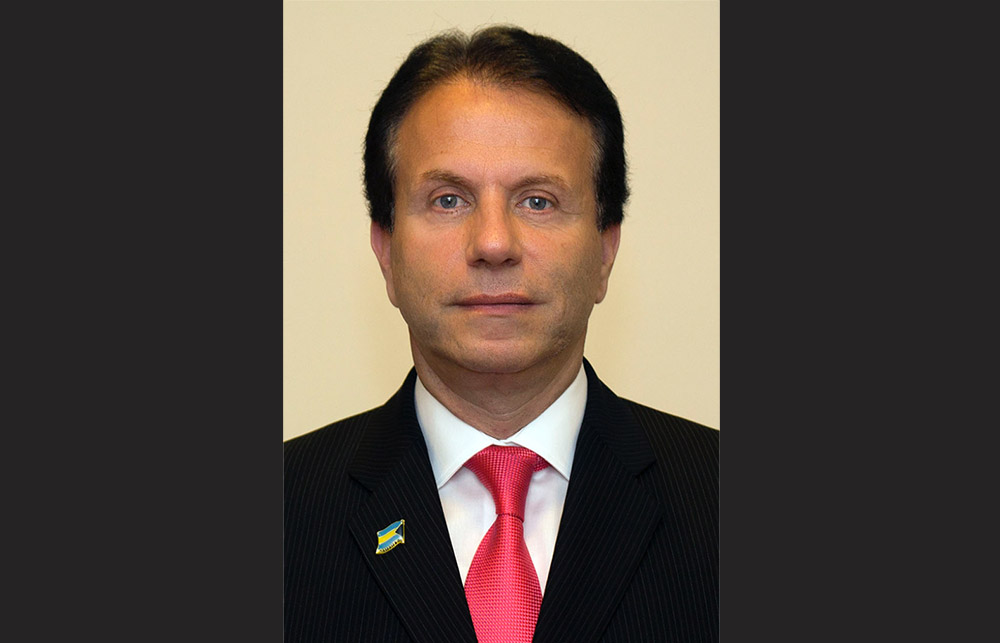
22 Apr Interview with Tony Joudi, Ambassador of the Bahamas to the UAE and the State of Qatar
How would you summarise the unique characteristics of the Bahamas that were on show at Expo Dubai 2020?
Working at the Expo as the commissioner general for the Bahamas’ pavilion for six months — commencing in October 2021 and ending in March 2022 — I was in a unique position to showcase the incredible wonders of the archipelago that makes up the Bahamas. In many ways, the Bahamas and the Emirates share characteristics that make them stand out — an element that was a clear point of focus at the Expo itself. Both are nations that are subdivided as islands and they are both geographically located in resource rich areas. The Bahamas has its luxurious beaches, enormous biodiversity and close proximity to major continental powers, while Dubai is an industrial and economic powerhouse with oil-rich sands that has made a rapid ascent onto the world stage. That made the cadence of cooperation between both countries a natural next step.
Some of the largest contributions that the Bahamas offered to the over 1.2 million visitors to our pavilion included the showcasing of the culmination of hundreds of years of rich history, which has been cultivated by Bahamians over the generations. Examples of this include the intricate architectural design that is intrinsic to Bahamian people, which is evident in their Junkanoo headdresses, straw thatch work and painting; the unforgettable flavours of a cuisine refined over decades of culinary excellence; and the entrancing personalities that set the stage for our touristic success, which has made us — an emerald gem set in a turquoise ocean — the envy of our neighbours.
The pavilion was an instrumental opportunity to allow us to open our doors to the world under the theme of “connecting minds and creating the future”. I’m proud to say that this Expo was truly one of a kind; notwithstanding it being the first of its kind in Middle East and an event where the Bahamas, a small country on the periphery of the Atlantic Ocean, could proclaim a place among giants. It was no small success either: it is estimated that, through the Expo, over 4 million people — in excess of our anticipated annual visitor count — will learn about and potentially visit the Bahamas this year and in 2023.
A large and significant delegation from the Bahamas attended Expo 2020 Dubai, the size of which received a little bit of criticism from within the Bahamas. How would you address that criticism?
This is a great question — you know, criticism is one of those things that many people shy away from, but I think it has an important place in maintenance of transparency. The Bahamas was undeniably in a time of need after the devastating damage Hurricane Dorian wreaked over the islands in 2019. In the wake of that, and compared to the expenditures that the islands see on projects that focus on internal development, would it have been right to stifle an opportunity to showcase our islands — our story — to millions of people around the world?
Investing in our country is one of the only ways we are going to continue to progress towards increased influence and financial independence. Indeed, what better opportunity than the Expo was there to promote our own identity to those who have the means to help us grow in ways we have only dreamed of? The delegation was a means to ensure that all parties were on the same playing field and understood the complex and newly budding relationship the Bahamas is going to share with the Emirates. These actions have had measurable outcomes as well: Reem Al Hashimy, the director general of the Expo, offered the Bahamas free participation in the event, with a pavilion that exceeded the specifications of other island nations. We had a two-story, fully furnished building covering 7,500 square feet that was designed by local Bahamian architects, which was the result of the extensive groundwork and goodwill building that was done by our delegations to Dubai.
In retrospect, more could have been done to ensure the Bahamian people were briefed on these developments. Given the unforeseen circumstances regarding the pandemic, however, priorities had to be rapidly shifted to accommodate changing needs and, as a result, not as much information passed through the necessary channels as it should have.
Historically, the Bahamas has probably invested more on promoting itself in the US, Latin America, other Caribbean countries and the UK, but the Middle East and the Gulf region are emerging destinations for the Bahamas in all areas. Was the Expo the perfect opportunity to introduce the archipelago to a wide range of potential new investors?
The good old days are gone — though we would like to, we cannot live on the goodwill of our past. We are facing fierce competition in the international marketplace. If we don’t tackle certain issues and promote our economy and the services we offer to the world, we will be left behind. We are currently looking at several ways to jumpstart our economy after Covid-19, such as by revitalising our tourism industry.
To address the ongoing need for aggressive intervention and promotion of the Bahamas on the world stage, our Prime Minster and Deputy Prime Minister are hard at work, travelling alongside representatives from different ministries to inform the world that the Bahamas is not only a getaway oasis, but it also offers enticing business opportunities.
To get to the point: yes, the Expo provided the Bahamas with a timely and opportunistic imperative to market and sell our tourism industry, promote investments and invite cooperative efforts to further our ability to provide for ourselves and others.
It should be noted that the Expo is, indeed, a form of tourism and though we may have a robust marketing budget for tourism through the traditional means of advertisement, new and innovative opportunities must be taken to remain relevant as the world becomes more globalised.
Many countries are fighting to attract a similar type of wealthy tourist that normally travels with their entire family and is looking for high-end services. The Bahamas offers exactly this kind of tourism experience. Is that one aspect you were promoting at the Expo?
I like to use this particular analogy to help explain my thoughts: let’s say you manufacture certain products — such as pens, windows, doors and so on — and you want to sell your product. The best place for you to do so would be at a large marketing booth where you could showcase the benefits and convenience of your items directly to an audience. Now expand that by several orders of magnitude and you have the Expo site, which connected us to representatives from 192 participating countries and had a visitor count of more than 25 million people.
During the six months, we utilised our talents to their maximum potential to connect with others to market and sell our products — and I do agree with you that tourists visiting from the Middle East do tend to spend more money by staying longer in the Bahamas and they are higher utilisers of luxury hotels and local shops, thereby increasing our revenues across the board.
Can you tell us about any collaboration agreements that the Bahamas and the UAE have made at the Expo?
Minister of Foreign Affairs Fred Mitchell signed a Memorandum of Understanding with Emirates airline and, in short order, we will see the results of this agreement. The Bahamas will also be signing five more agreements: two for trade and industry, two for double taxation and security for investments, and one for agriculture. In addition, we have signed an agreement on technology cooperation between the two countries and another one on collaboration between University of the Bahamas and the American University of Dubai.
It was our strategy of attending the Expo that enabled this collaboration with the government of the UAE and I’d like to take this opportunity to extend my personal gratitude to the leaders of the UAE and their fortitude in using the Expo to bring the whole world closer.
The Bahamas is an important financial centre. What initiatives are taking place in the country that focus on Islamic banking?
Our financial policymakers and banking institutions are looking at Islamic banking for diversification. As a matter of fact, a mission was launched in 2019 whereby Bahamas Financial Services Board representatives travelled to Dubai to meet with their counterparts and to discuss the viability of a proposal related to cooperation on Islamic banking. It remains to be seen what effects lie downstream of that proposal, but it has laid the groundwork for future cooperation and the potential diversification of Bahamian assets.
How big a trading partner is the UAE for the Bahamas at the moment?
There is some level of trade going on between the two countries on a small scale. For instance, our marine industry supplies the UAE with fish and lobster. There are also some local wholesalers that buy products from the UAE on a continuous basis, which include agricultural products and non-alcoholic drinks.
How to you envisage the relationship between the UAE and the Bahamas developing in the future?
Our leaders’ intention is to maintain the solid and healthy relationship we have cultivated with the UAE and we plan to continue on the path of progress through cooperation and ongoing dialogue. It is only the beginning, but I envision a future in which close cooperation opens doors that propel the Bahamas into a domain of success and prosperity that our ancestors could have only imagined. The strength and willpower of the Bahamian people is what I anticipate will allow for increased globalisation and success while maintaining our unique identity


No Comments